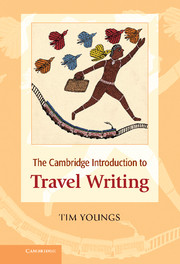Book contents
Chapter 6 - Quests
Published online by Cambridge University Press: 05 May 2013
Summary
We’re always leaving home because we’re partly looking for something else.
Raphael KadushinQuests of different sorts have motivated travellers for millennia. They may be spiritual or material, pacific or martial, solitary or collective, outward into the world or inward into the self. Travellers strive for victory – over aspects of themselves or over others. They search for enlightenment; for knowledge of other people, societies and culture, of flora, fauna and geology; they look for financial profit for themselves, their companies or their countries; they seek new homes, temporary or long-term, through choice or necessity; they pursue leisure, sex, self-improvement; they aim to find spiritual reward or psychological repair in enactments of the inner journey (the subject of Chapter 7).
In the course of the quest, challenges have to be confronted and overcome. The obstacles to be surmounted may be human, animal, topographic or facets of one’s own psyche. Triumph over these endows the traveller with authority and status and reduces the standing of the antagonist.
Elsner and Rubiés write that ‘The importance of the modern theme of travel as a quest – often a negative, pointless one – and of travel literature as a fundamental part of a system of empirical narrative practices is best understood historically, in the light of the traditions that have defined Western culture through Antiquity and the Middle Ages’. Some idea of the emergence and development of this theme has been provided by the historical overview in Part I. A critical text in this regard is Cervantes’s picaresque novel Don Quixote (1605–14), a monumental work that mocked the chivalric delusions of its titular quester. The puncturing of fantasy and the injection of realism applied beyond the Spanish borders, but it would be wrong to imply that realist, secular narratives have supplanted the sacred. Narratives of religious quest that provide solace or fulfilment to their protagonists continue to be produced.
- Type
- Chapter
- Information
- The Cambridge Introduction to Travel Writing , pp. 87 - 101Publisher: Cambridge University PressPrint publication year: 2013



